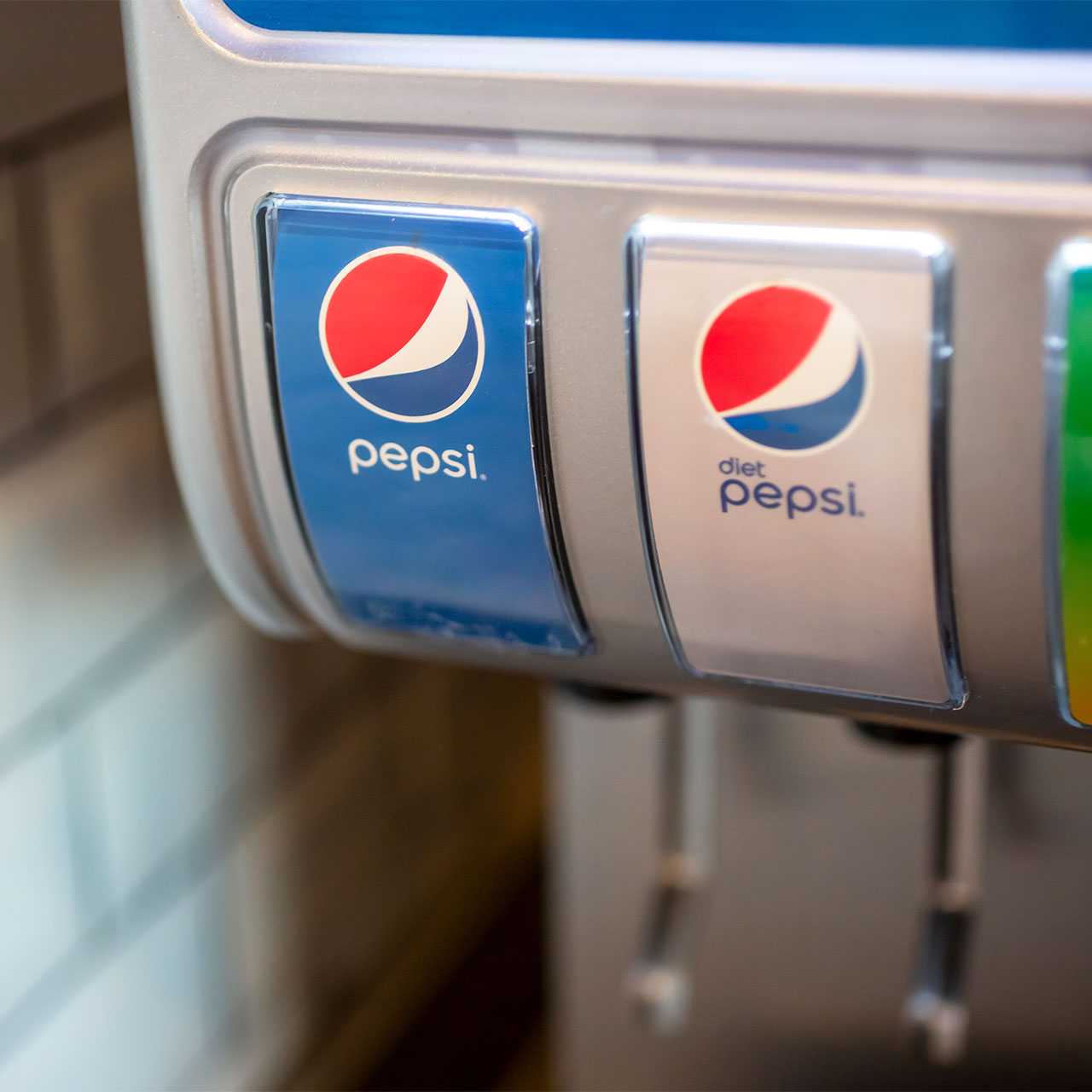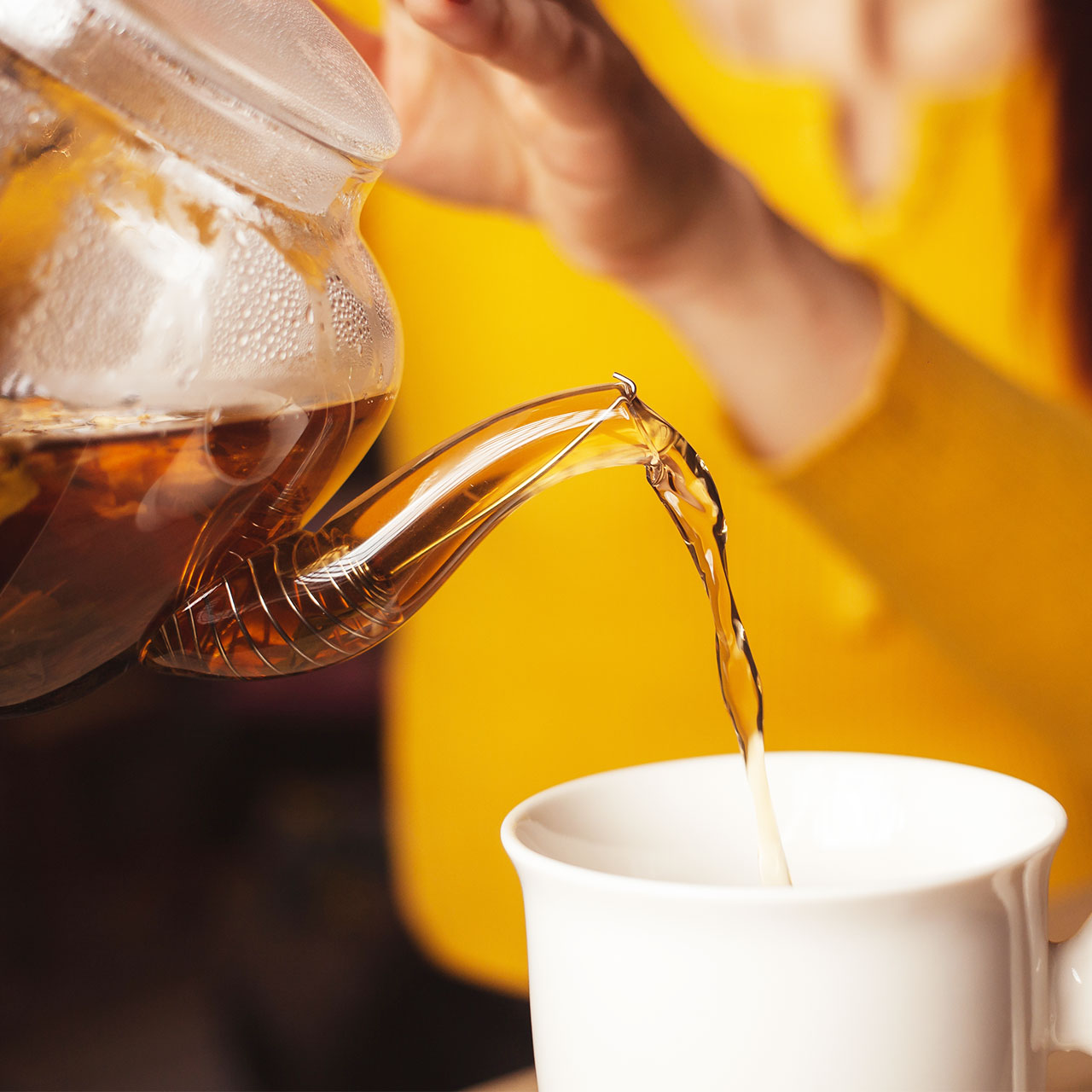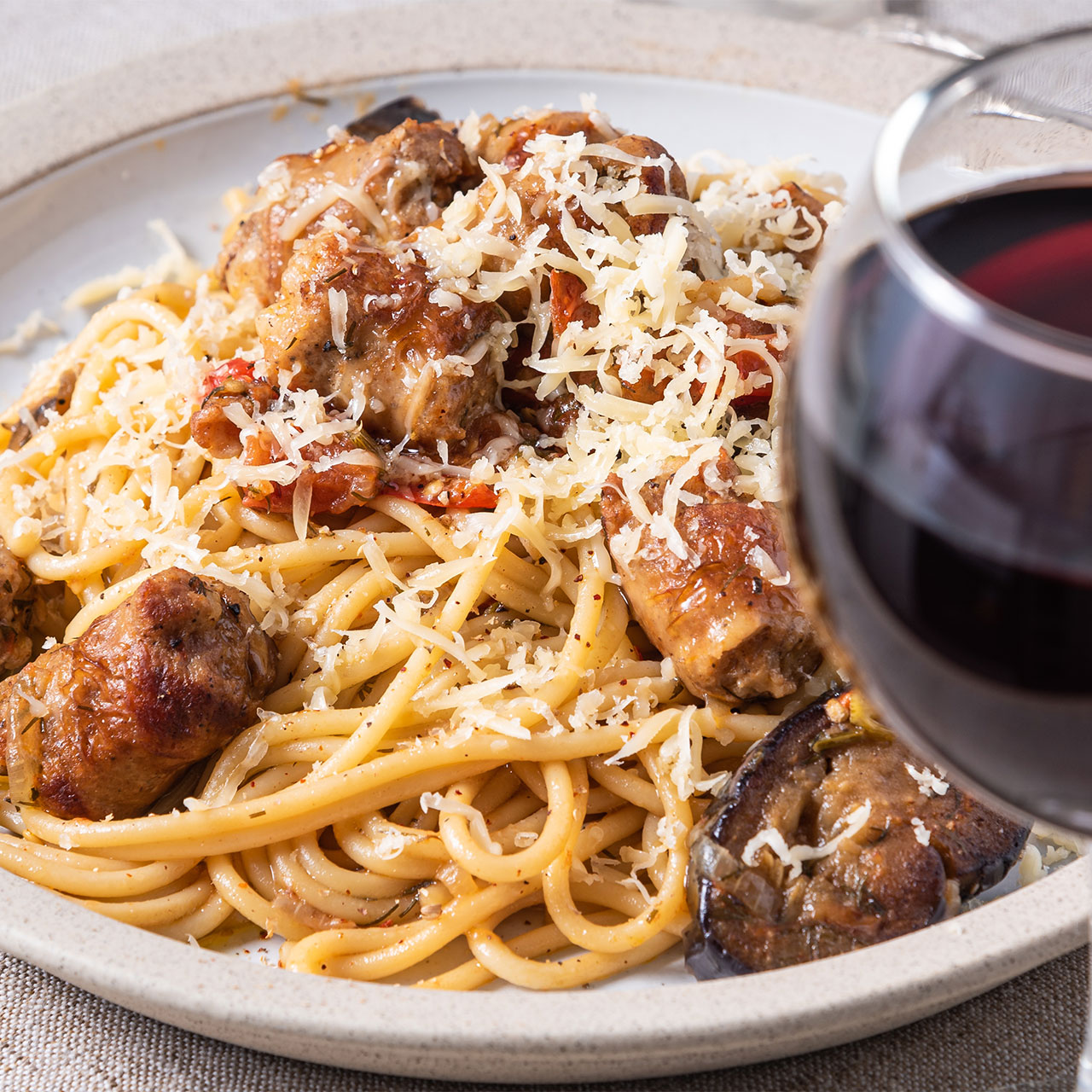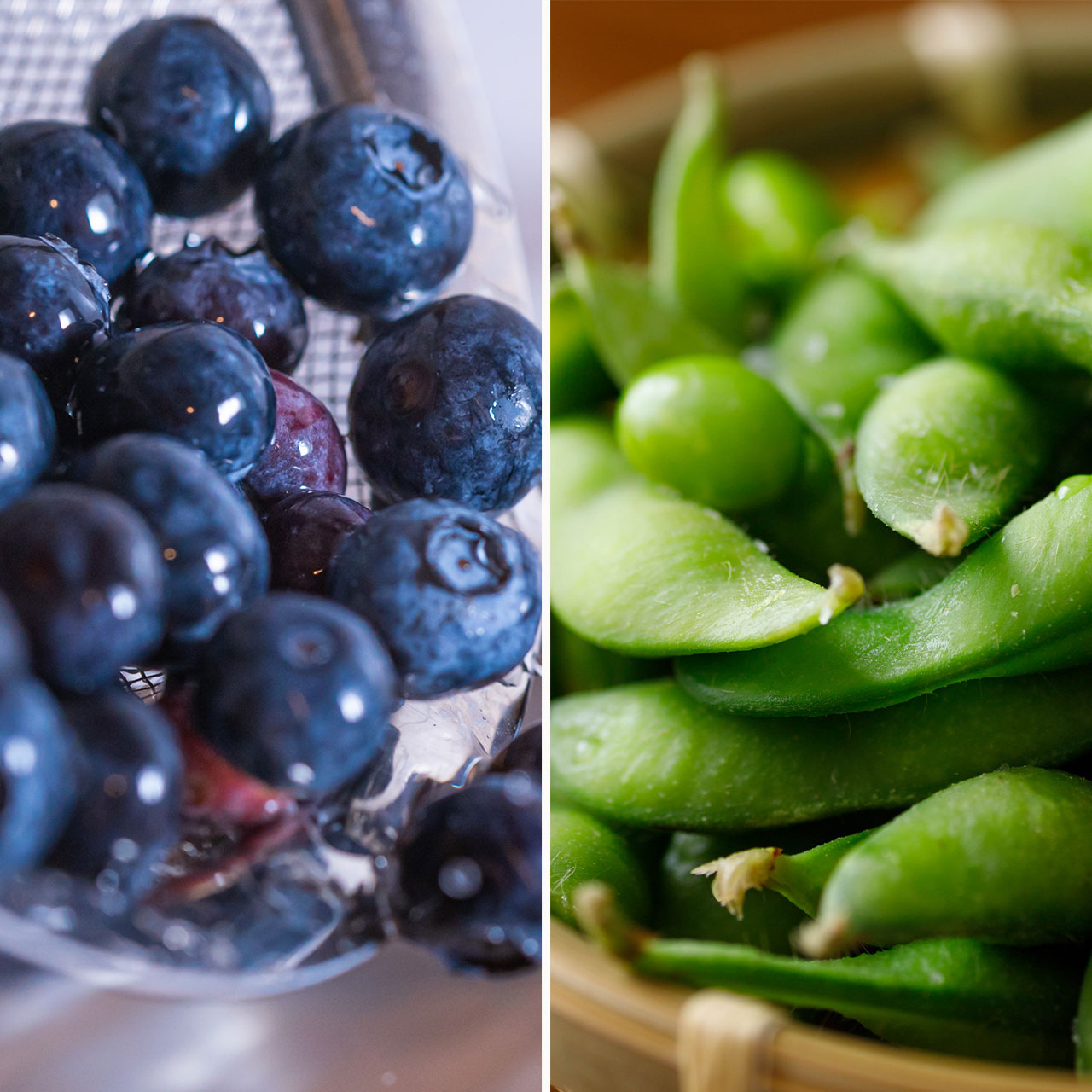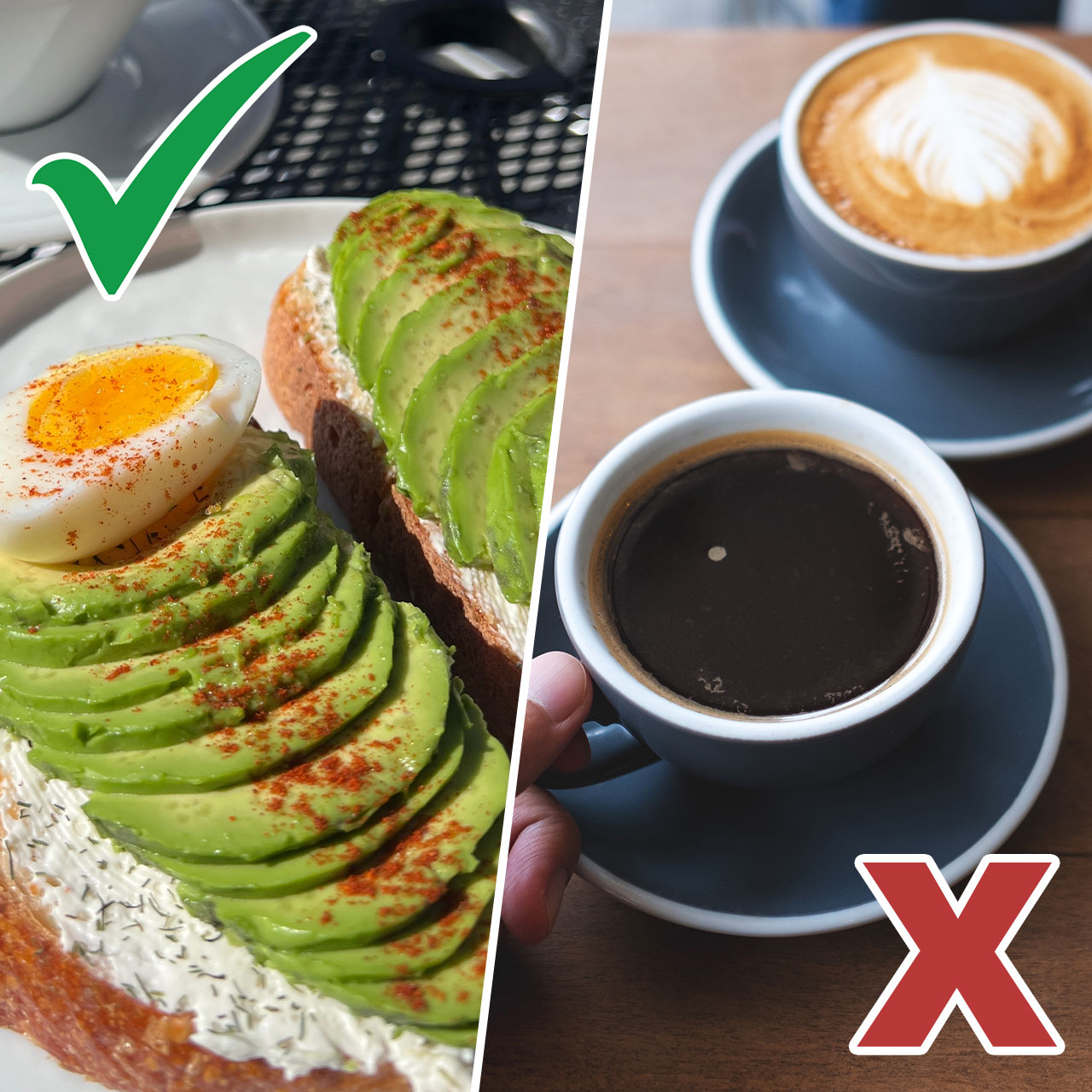Exploring the aisles of our pantry can often lead to a quick fix for hunger, but not all snacks are created equal. While convenient, some ultra-processed options can have detrimental effects on our health. Beyond just satisfying cravings, these snacks can contribute to issues like insulin resistance, a slowed metabolism, and unwanted weight gain over 40.
We checked in with different health experts to find out the common processed snacks to remove from your pantry because they harm your metabolism, make weight loss harder, and spike your blood sugar levels as you age. They revealed that foods such as cookies, processed meats, trail mix, and many more are the worst culprits. Read on to discover all 11 and why they’re so bad for you.

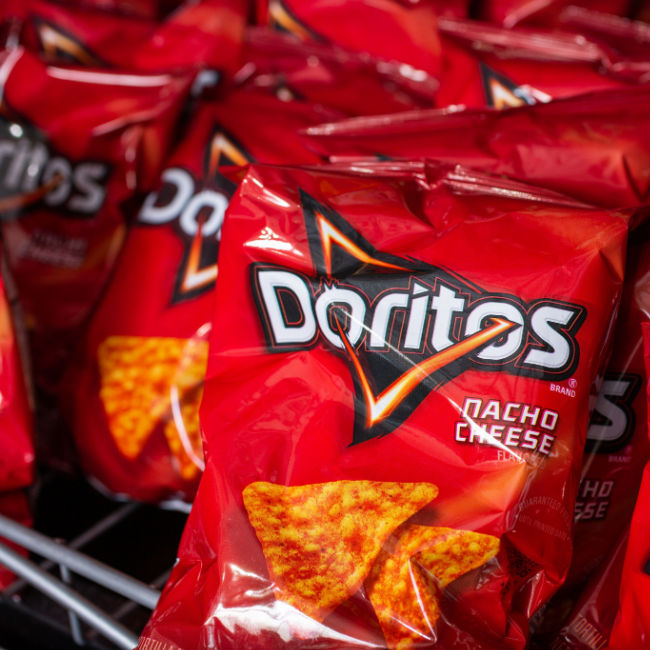
1. Doritos
Doritos, with their tantalizing crunch and bold flavors, are a staple in many snack cabinets. However, their status as a highly processed snack comes with potential health consequences. Packed with refined carbohydrates, unhealthy fats, and a laundry list of artificial ingredients, these crunchy snacks are to be avoided for several reasons.
"They are often fried, made with inflammatory omega-6 oils, refined carbohydrates, and a combination of fat and carbs that cause oxidative stress in the body," nutritionists Trista Best from Balance One Supplements explains.
"Doritos are one of the worst types of chips to consume, regardless of flavor." As Best points out, "They are made with artificial colors and flavors along with refined carbs. This form of carb causes a rapid increase in glucose, which also increases the body's fat-storing rate."
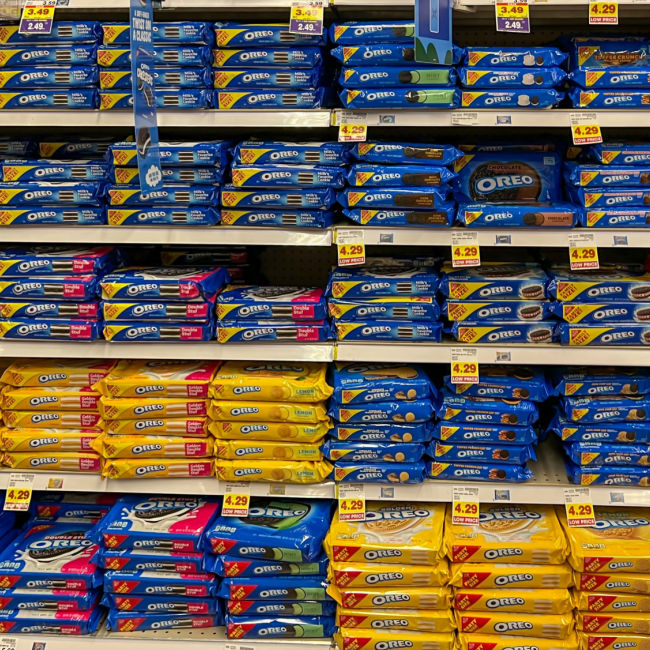
2. Cookies
Laden with refined sugars, unhealthy fats, and artificial additives, regular consumption of cookies can contribute to insulin resistance, a sluggish metabolism, and unwanted weight gain.
Valeria Dolbel, founder of Beauty Diets, says treats like pies, cookies, and cakes "are the food category that contributes the most calories accounted for added sugar intake yet provide little to no nutritional value."
"Low fiber and highly refined grains increase the risk of weight gain and higher levels of belly fat," Dolbel explains, adding that your favorite cookie likely "causes belly fat due to highly-processed ingredients such as butter, sugar, and refined flour."
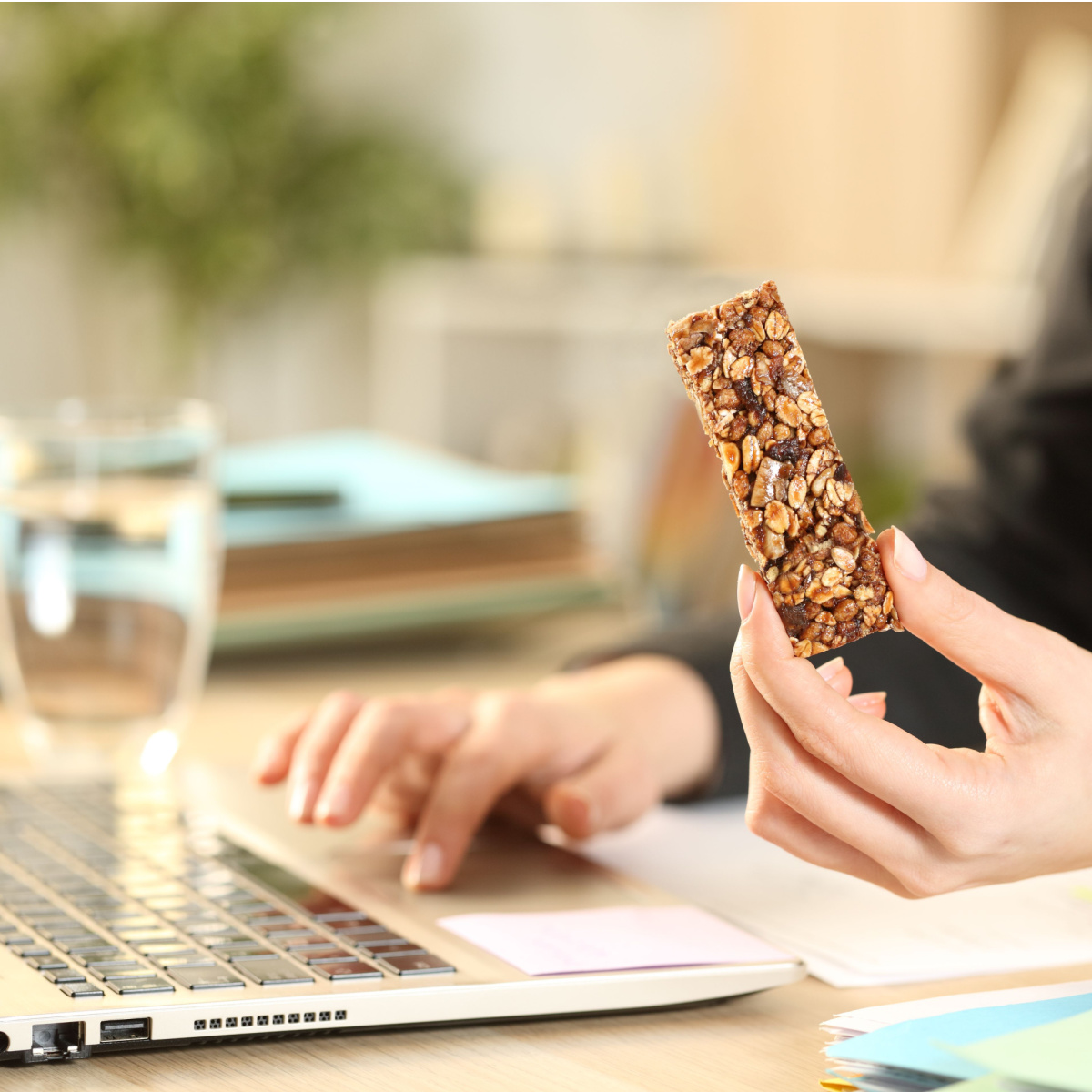
3. Granola Bars
Granola bars, often touted as a healthy on-the-go snack, may not always live up to their nutritious reputation. Despite their convenience and wholesome image, many commercial granola bars are packed with refined sugars, processed grains, and hidden fats.
"Granola bars are the worst 'healthy' food for weight loss because they are full of inflammatory ingredients that prevent weight loss, including refined sugars and grains. Many food manufacturers claim that their granola bars are healthy because they contain oats, but the added ingredients in granola bars are what makes them so unhealthy," says Heather Hanks, a nutritionist at Medical Solutions Barcelona.
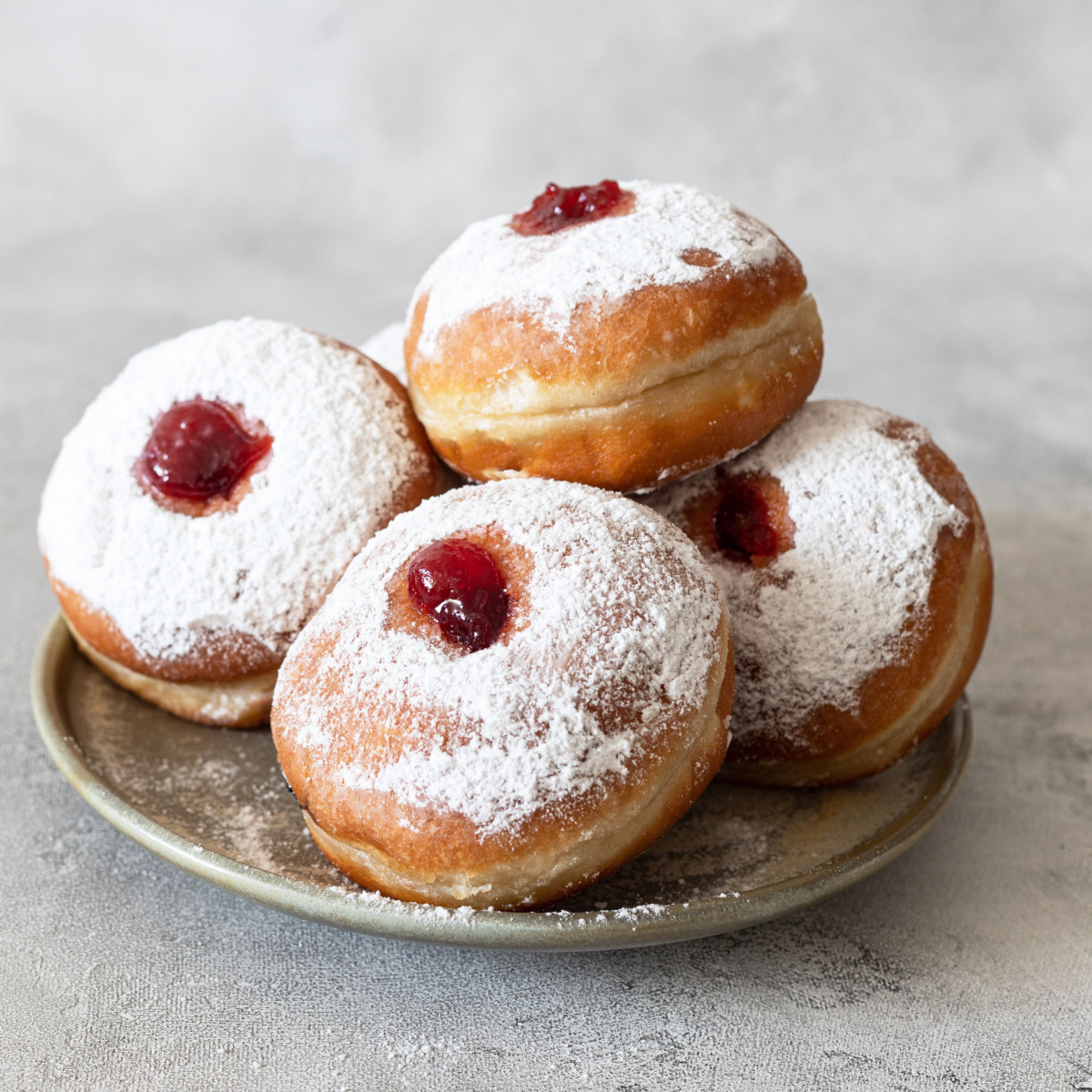
4. Donuts
Donuts, with their fluffy texture and sugary glaze, are a beloved indulgence for many. Often fried in unhealthy oils, donuts are a double whammy of refined carbohydrates and trans fats. These ingredients, combined with the frying process, create a perfect storm for health issues.
Refined carbohydrates, found in the dough, rapidly spike blood sugar levels, leading to insulin resistance over time as the body struggles to manage glucose effectively.
Richards states that "donuts have a high content of refined sugars, unhealthy fats, and processed ingredients. They are typically made with refined wheat flour and packed with added sugars, causing a rapid rise in blood glucose levels when consumed. This sudden spike in blood sugar triggers a corresponding surge in insulin to regulate sugar levels, which can be harmful to the body in the long term and lead to insulin resistance."
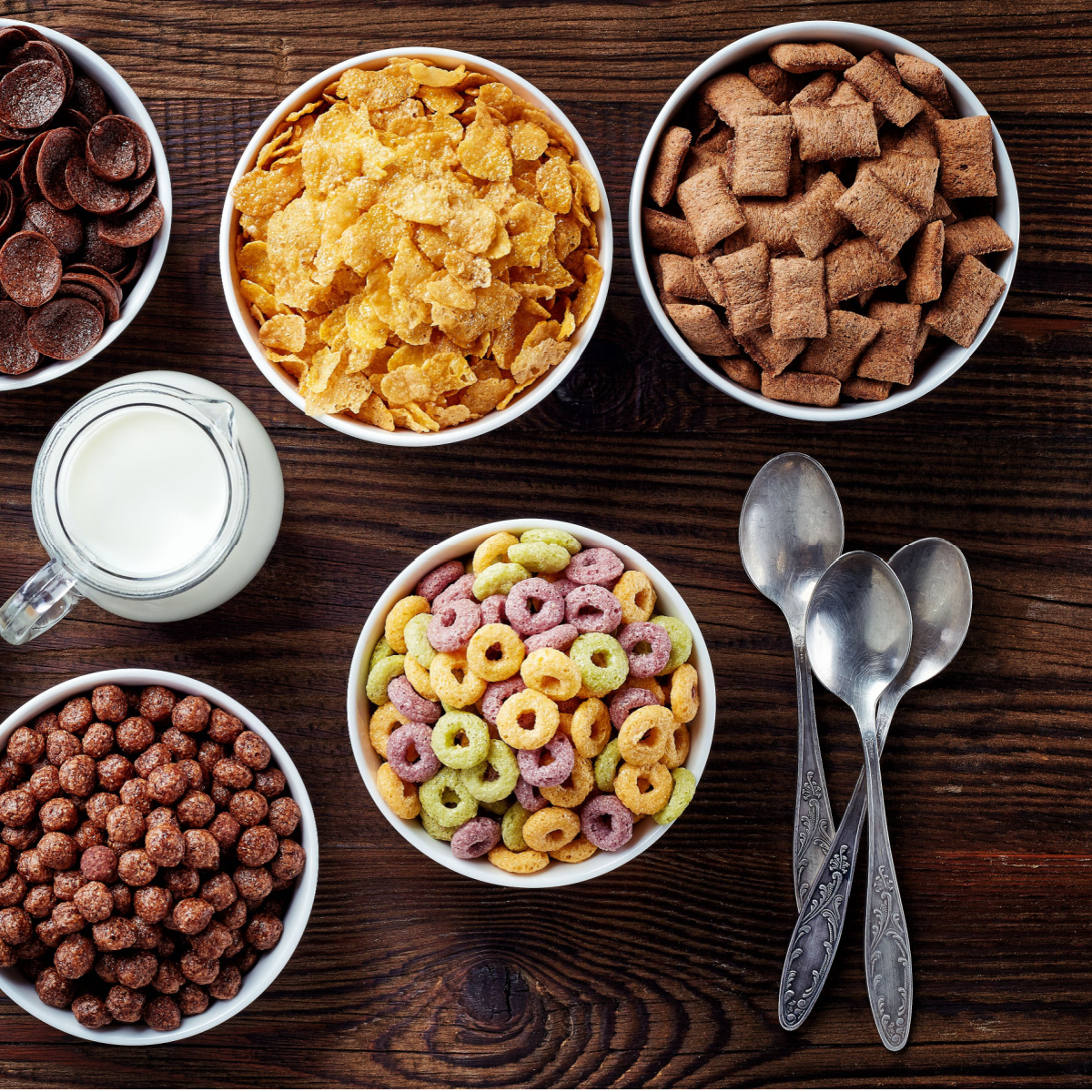
5. Cereal
Breakfast cereal, with its myriad of flavors, textures, and choices, has long been a staple of the morning routine for many. These convenient and often tasty options seem like a quick and healthy way to kickstart the day. However, it's essential to consider the link between breakfast cereal and weight gain, along with other health problems such as a sluggish metabolism and insulin resistance.
While some boast of their health benefits and whole-grain goodness, others hide excessive sugar and refined carbohydrates behind clever marketing.
"Cereals are often very high in sugar and low in fiber, which means they pass through your digestive system quickly. Fiber keeps you feeling fuller for longer, which helps control your food intake and prevent weight gain. It also causes slower digestion which means a slower release of energy into your bloodstream throughout the day. Even brands like Special K and Life, which are heavily marketed as weight loss friendly cereals, have the same low amount of fiber found in the common sugary brands like Frosted Flakes," Destini Moody, registered dietitian and certified specialist in sports dietetics, notes.
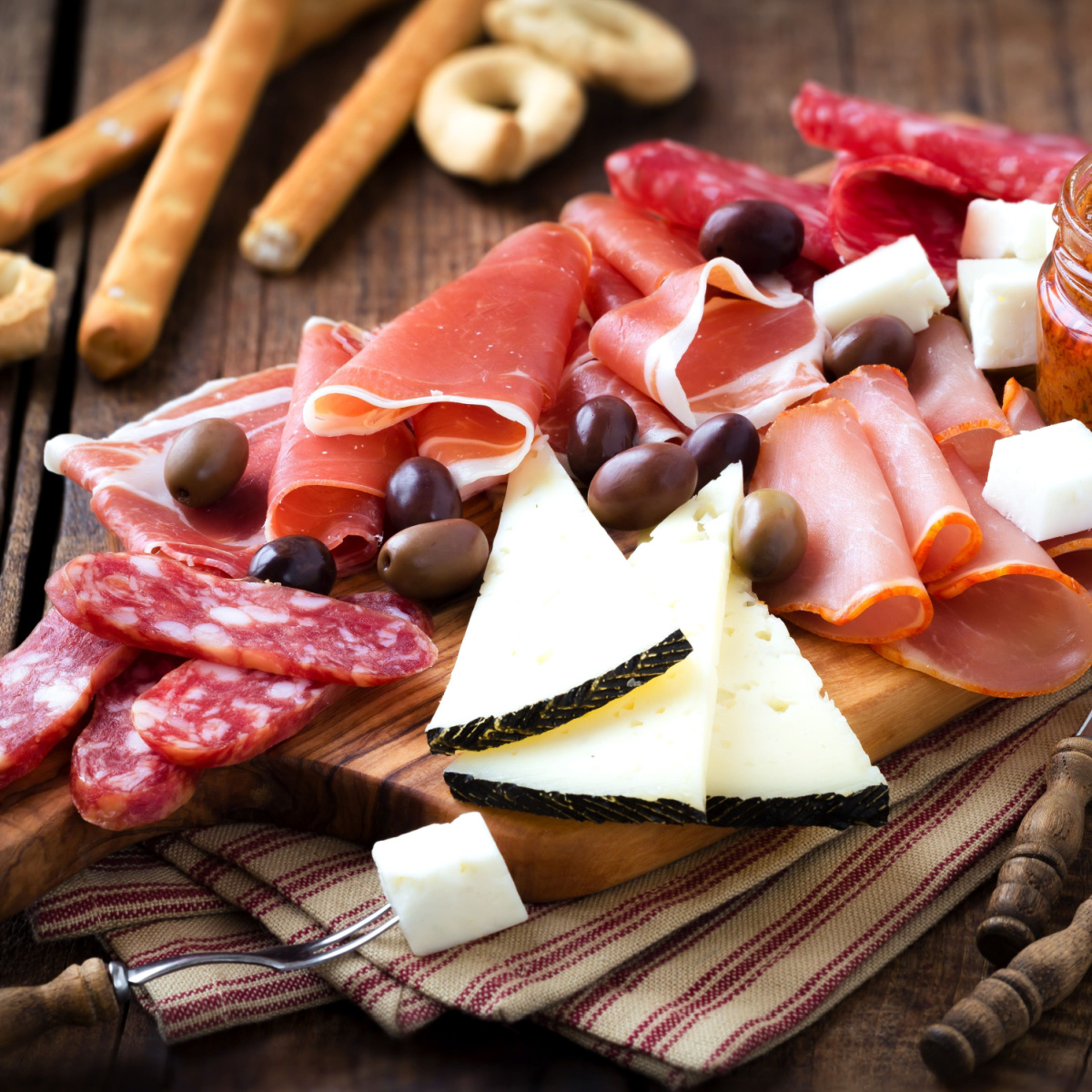
6. Processed Meats
Processed meat snacks, such as beef jerky, sausages, and pepperoni sticks, have gained popularity as convenient on-the-go options. However, these products are often high in unhealthy fats, sodium, and preservatives, making them a potential contributor to weight gain.
Mary Sabat, MS, RDN, LD from Ace Personal Trainer, says, "Beef jerky, sausages, and hot dogs are high in unhealthy fats and additives that can contribute to weight gain, including visceral fat."
Excessive consumption of processed meat snacks can lead to an increased calorie intake and may promote overeating due to their addictive flavors and convenient packaging.
To replace processed meat snacks with healthier options, consider choosing whole foods like fresh or dried fruits, vegetable sticks with hummus, nuts, and seeds for their nutrient density and satiety. Greek yogurt, cheese, hard-boiled eggs, and avocado slices offer protein and healthy fats.
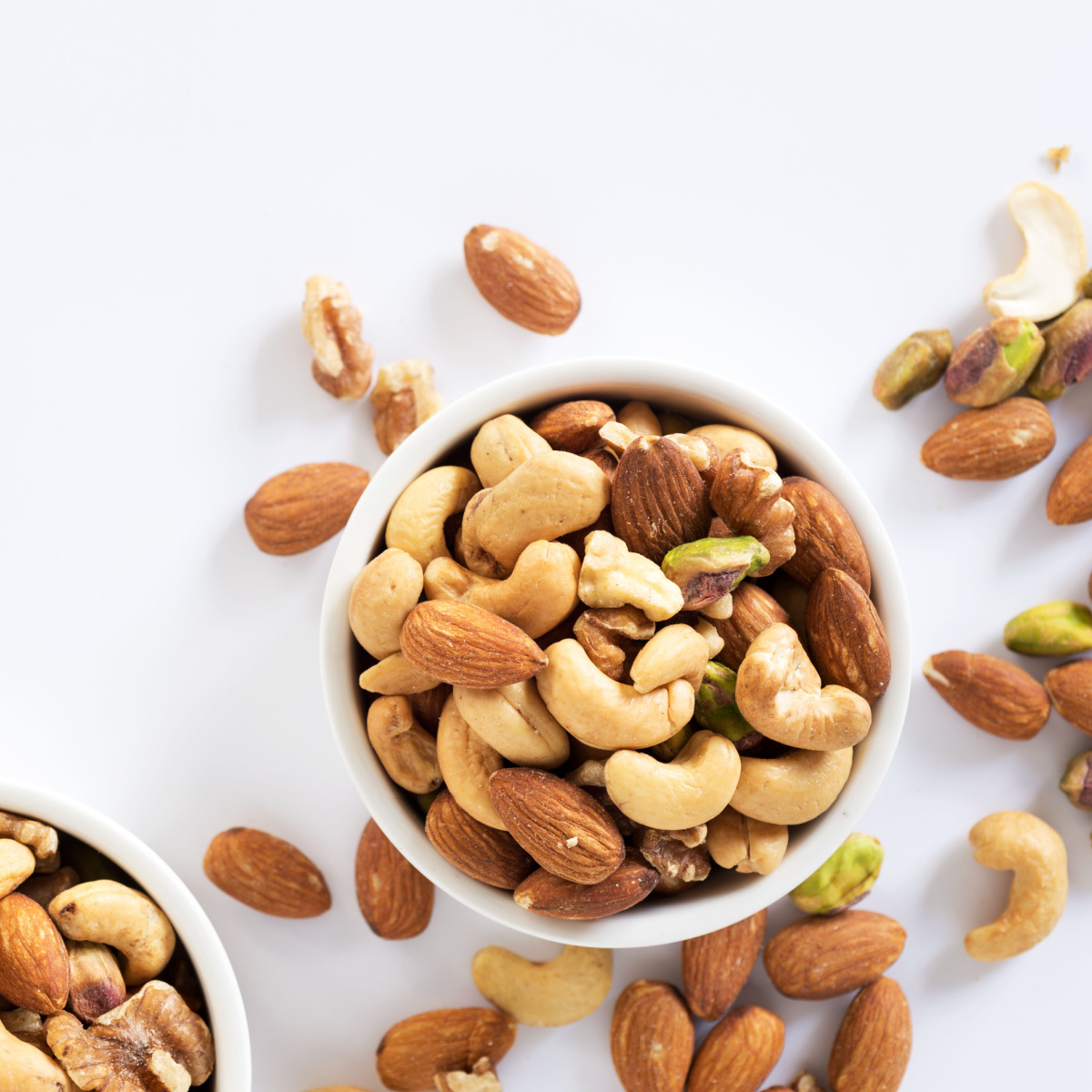
7. Nuts
Nuts are nutrient-dense and packed with healthy fats, making them a popular choice among health-conscious individuals. However, it's crucial to consume them in moderation.
While nuts provide essential nutrients and can be part of a balanced diet, excessive consumption can contribute to a bigger waistline due to their calorie density. A small handful of nuts can be a satisfying and nutritious snack, but mindless munching on larger portions can lead to an unintended increase in calorie intake, potentially leading to weight gain if not accounted for within one's overall dietary balance.
"Nuts like almonds are rich in Vitamin E, a powerful antioxidant, along with heart healthy fats that reduce risk of heart disease. However, just one handful can hold 150-200 calories, which is more calories than a homemade chocolate chip cookie," Moody states.
Moody also makes sure to highlight that while almonds are always a better choice than cookies, it's important to enjoy nuts as a part of a well-rounded diet while being mindful of portion sizes.
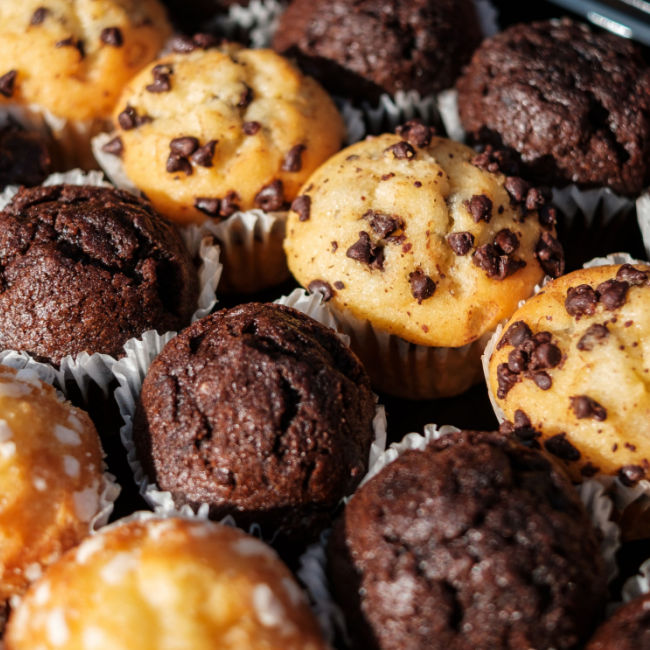
8. Muffins
Many store-bought muffins are loaded with refined sugars, processed flours, and unhealthy fats, regardless of their flavor variety. Whether it's blueberry, chocolate chip, or banana nut, these muffins typically contain high levels of refined carbohydrates, which can quickly spike blood sugar levels and contribute to insulin resistance over time.
"You may call them muffins, but my brain says, cake. Whether they're from a bakery or a box, traditional muffins are high in calories and fat, which could lead to belly fat over time. Some of them contain over 350 calories per muffin," Lisa Andrews, MEd, RD, LD, a registered dietitian nutritionist, warns.
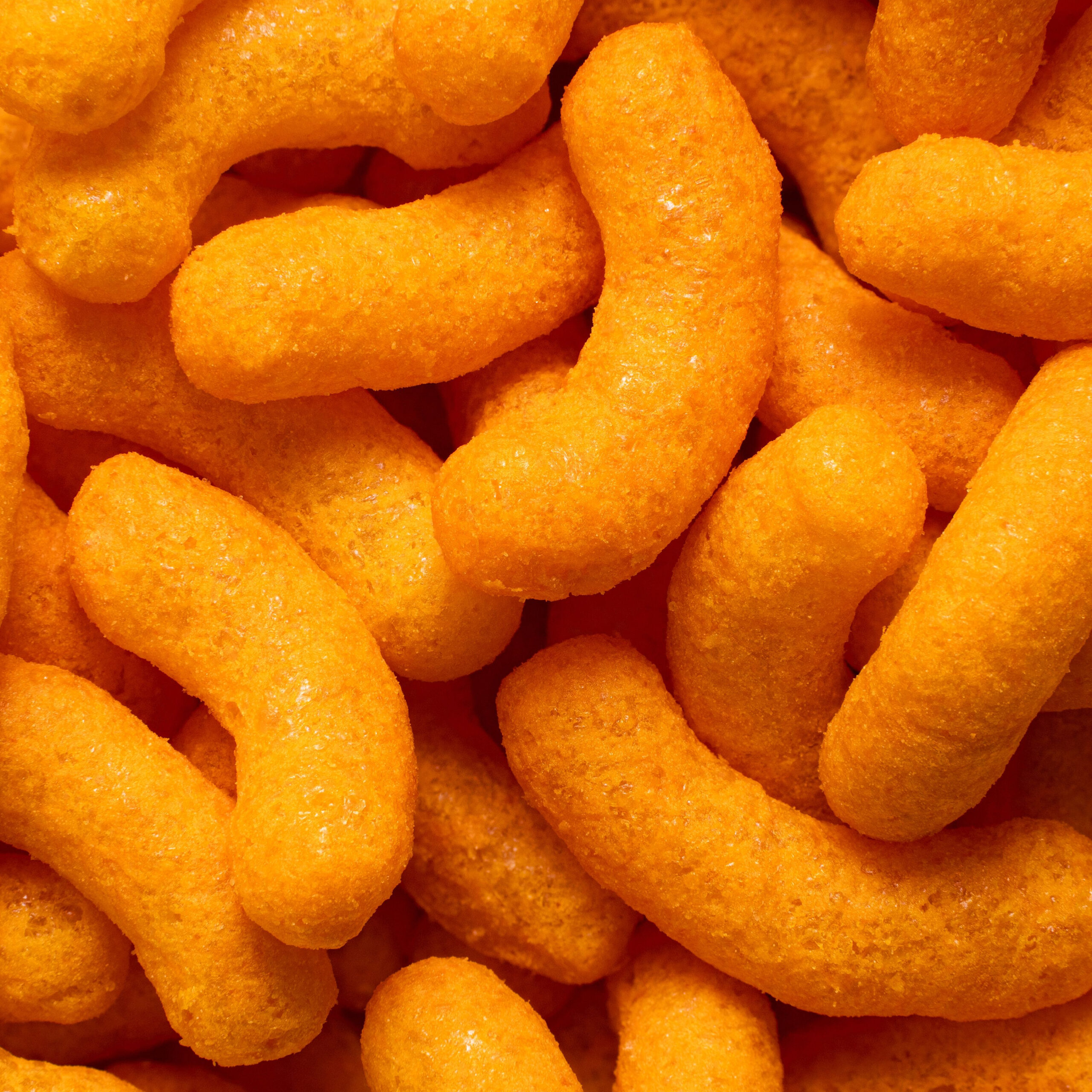
9. Cheese Puffs
While cheese puffs come in a variety of flavors, from classic cheddar to spicy jalapeño, their nutritional profile remains largely the same. Often made from highly processed cornmeal or other refined grains, cheese puffs are typically loaded with unhealthy fats, sodium, and artificial additives.
These ingredients, combined with their high carbohydrate content, can lead to rapid spikes in blood sugar levels and contribute to insulin resistance over time.
Additionally, the excessive consumption of refined carbohydrates and unhealthy fats found in cheese puffs can disrupt metabolic function, leading to a slowed metabolism and increased fat storage, ultimately contributing to weight gain.
"Cheese puffs and similar cheesy snacks are often made with partially hydrogenated oils, which contain trans fats," Sabat warns. "These trans fats raise bad cholesterol (LDL) levels and lower good cholesterol (HDL), contributing to arterial plaque buildup."
"These cheesy snacks are not only highly processed but also contain high levels of saturated and trans fats. Regular consumption can lead to elevated cholesterol levels, arterial inflammation, and the buildup of fatty deposits in the arteries," she states.
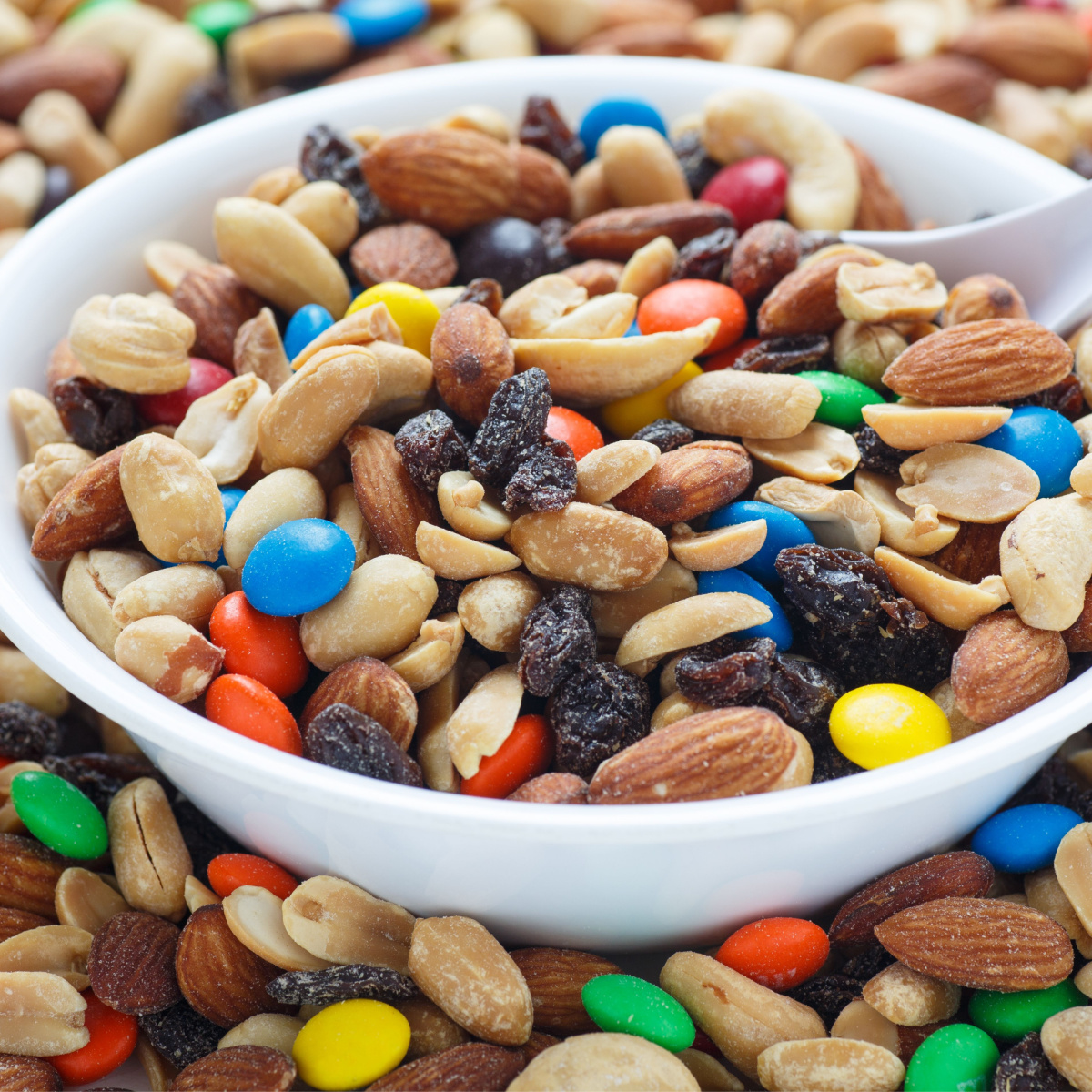
10. Store-bought Trail Mix
Many commercially available trail mixes contain a mix of nuts, dried fruits, and sometimes candies or chocolate. While nuts offer beneficial nutrients, the overall calorie density of trail mix can be high, especially when combined with sugary additions. The dried fruits often contain added sugars, and the chocolate or candies contribute extra calories and refined sugars.
Andrews elaborates further and says, "Trail mix, similar to granola bars, may look innocent. However, the calorie load can be quite high between the dried fruit, nuts, and chocolate pieces in the bag. Unless the serving is portioned out, it's easy to overeat these crunchy, chewy nuggets, which can lead to weight gain."

11. Candies
Despite the wide array of flavors and varieties available, from fruity gummies to rich chocolates, candies cause a rapid spike in blood sugar levels, leading to increased insulin production to help regulate glucose levels.
Moreover, the high calorie content of candies, often devoid of essential nutrients, can contribute to a slowed metabolism and increased fat storage, ultimately leading to weight gain.
Sabat elaborates on candies by pointing out their high-sugar, low fiber content and artificial ingredients. "Most candies contain high amounts of added sugars, such as sucrose and high fructose corn syrup. These sugars can feed harmful bacteria in the gut, leading to an imbalance in the gut microbiome. An overgrowth of harmful bacteria can result in digestive issues, inflammation, and compromised gut health. Fiber acts as a prebiotic, nourishing beneficial gut bacteria and promoting a balanced gut microbiome. Without enough fiber, the gut's ecosystem can become imbalanced, potentially leading to gastrointestinal problems," Sabat states.


